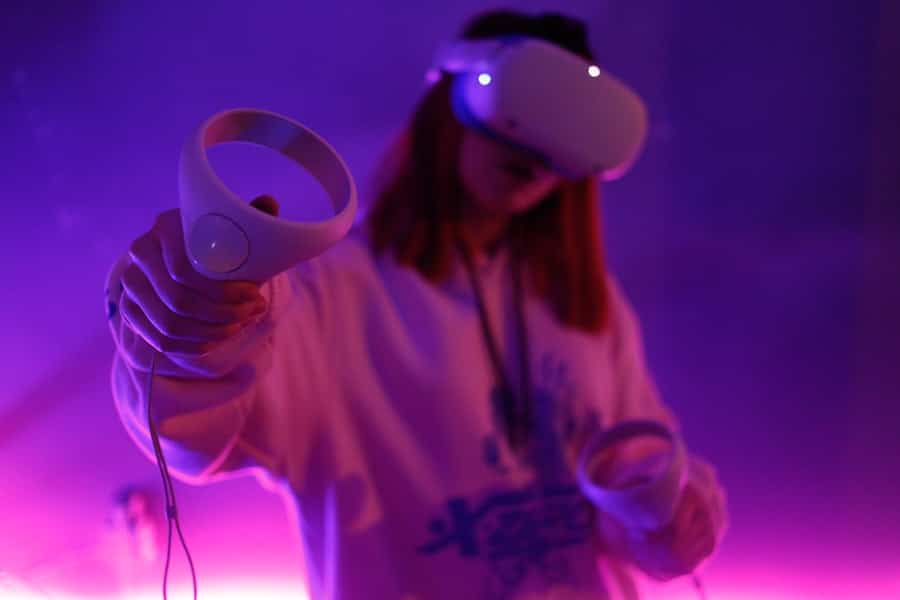As you delve into the world of gaming, you may notice that artificial intelligence (AI) has become an integral part of the gaming landscape. From the early days of simple algorithms that dictated enemy behavior to the sophisticated systems that power today’s immersive experiences, AI has transformed how games are designed, developed, and played. The evolution of AI in gaming is not just a technological advancement; it represents a shift in how players interact with virtual worlds, making experiences more engaging and personalized than ever before.
The integration of AI into gaming has opened up new avenues for creativity and innovation. Game developers are now able to create more complex narratives and dynamic environments that respond to player actions in real-time. This has led to a richer gaming experience, where players feel a deeper connection to the game world and its characters.
As you explore various titles, you may find that AI is not just a tool for enhancing gameplay but a fundamental component that shapes the very essence of modern gaming.
Key Takeaways
- AI in gaming refers to the use of artificial intelligence to enhance various aspects of game development and player experience.
- AI-powered game design and development involves using machine learning and algorithms to create game content, characters, and environments.
- AI can enhance player experience and engagement by personalizing gameplay, providing real-time feedback, and creating dynamic and adaptive game environments.
- AI in game testing and quality assurance can automate testing processes, identify bugs and glitches, and improve overall game performance.
- AI can be used to create personalized gaming experiences by analyzing player data, preferences, and behavior to tailor gameplay and content.
AI-powered Game Design and Development
In the realm of game design and development, AI has revolutionized the way games are created. You might be surprised to learn that AI algorithms can assist developers in generating vast game worlds, crafting intricate storylines, and even designing characters. By utilizing procedural generation techniques, developers can create expansive environments that feel unique and alive, allowing you to explore diverse landscapes without the limitations of manual design.
Moreover, AI can analyze player behavior and preferences, providing developers with valuable insights into what works and what doesn’t. This data-driven approach enables them to refine gameplay mechanics and enhance user experience. As you engage with different games, you may notice how AI-driven design choices lead to more intuitive controls and smoother gameplay, ultimately making your gaming experience more enjoyable.
AI in Player Experience and Engagement

When it comes to player experience, AI plays a pivotal role in creating engaging and immersive environments. You may have encountered non-playable characters (NPCs) that exhibit lifelike behaviors, responding to your actions in ways that feel organic and believable. This is made possible through advanced AI algorithms that allow NPCs to learn from player interactions, adapting their responses based on your choices and actions.
Additionally, AI can enhance storytelling by personalizing narratives based on your decisions. Imagine playing a game where the storyline shifts dramatically depending on your choices, creating a unique experience tailored just for you. This level of engagement not only keeps you invested in the game but also encourages replayability, as you may want to explore different paths and outcomes in subsequent playthroughs.
AI in Game Testing and Quality Assurance
Quality assurance is a critical aspect of game development, and AI is making significant strides in this area. Traditionally, game testing involved extensive manual playtesting to identify bugs and glitches. However, with the advent of AI, this process has become more efficient and effective.
You might be intrigued to know that AI can simulate thousands of gameplay scenarios in a fraction of the time it would take human testers, identifying potential issues before the game reaches your hands. Furthermore, AI can analyze player feedback and behavior patterns to pinpoint areas for improvement. By leveraging machine learning algorithms, developers can continuously refine their games post-launch, ensuring that your experience remains smooth and enjoyable.
This proactive approach to quality assurance means that you can expect fewer bugs and a more polished final product when you dive into new releases.
AI in Personalized Gaming Experience
Personalization is at the heart of modern gaming, and AI is the driving force behind this trend. As you navigate through various titles, you may notice how games adapt to your playstyle, preferences, and even emotional responses. AI algorithms can analyze your gameplay patterns, adjusting difficulty levels or suggesting content that aligns with your interests.
This tailored approach ensures that you remain engaged and challenged without feeling overwhelmed. Moreover, AI can enhance social interactions within games by connecting you with like-minded players or recommending multiplayer experiences based on your preferences. Imagine joining a gaming community where every match feels curated just for you, fostering connections with others who share your interests.
This level of personalization not only enriches your gaming experience but also creates a sense of belonging within the gaming community.
AI in Virtual Reality and Augmented Reality Gaming

The rise of virtual reality (VR) and augmented reality (AR) has further expanded the role of AI in gaming. As you immerse yourself in these technologies, you may find that AI enhances the realism and interactivity of these experiences. In VR environments, AI can create responsive worlds that react to your movements and actions, making you feel as though you truly inhabit the game space.
In AR gaming, AI plays a crucial role in recognizing real-world objects and integrating them seamlessly into the gameplay experience. For instance, as you explore your surroundings while playing an AR game, AI can identify landmarks or items in your environment, incorporating them into the narrative or challenges you face. This fusion of real and virtual worlds creates a captivating experience that blurs the lines between reality and fantasy.
AI in Game Monetization and Marketing
As the gaming industry continues to evolve, so too do the strategies for monetization and marketing. AI is becoming increasingly important in these areas, helping developers understand market trends and player behavior. You may have noticed targeted advertisements or personalized offers based on your gaming habits; this is a direct result of AI analyzing vast amounts of data to tailor marketing efforts specifically for you.
Additionally, AI can optimize in-game monetization strategies by analyzing player spending patterns. By understanding what drives players to make purchases or engage with microtransactions, developers can create more effective pricing models that resonate with their audience. This not only enhances revenue potential but also ensures that you receive value for your investment in the game.
The Future of AI in Gaming
Looking ahead, the future of AI in gaming appears bright and full of possibilities. As technology continues to advance, you can expect even more sophisticated AI systems that enhance every aspect of gaming—from design and development to player engagement and monetization. The potential for creating hyper-realistic worlds with intelligent NPCs that learn from your behavior is just around the corner.
Moreover, as virtual reality and augmented reality technologies mature, AI will play an increasingly vital role in shaping these experiences. Imagine stepping into a fully realized world where every character responds uniquely to your presence or where challenges adapt dynamically based on your skill level. The integration of AI will not only elevate gameplay but also redefine what it means to be a gamer in an ever-evolving digital landscape.
In conclusion, as you explore the multifaceted world of gaming, it’s clear that artificial intelligence is not merely an enhancement but a transformative force shaping the industry’s future. From personalized experiences to innovative game design, AI is paving the way for a new era of interactive entertainment that promises to captivate players like never before. As technology continues to evolve, so too will the possibilities for creating immersive worlds that resonate deeply with your gaming journey.
Revolutionizing the Gaming Industry with AI is a fascinating topic that explores the impact of artificial intelligence on the gaming world. For further insights into how AI is transforming the entertainment industry, readers may also be interested in the article AI in Gaming and Entertainment. This article delves into the various ways in which AI is being utilized in the world of gaming and entertainment, shedding light on the innovative technologies that are shaping the future of these industries.
FAQs
What is AI in the gaming industry?
AI, or artificial intelligence, in the gaming industry refers to the use of advanced algorithms and machine learning techniques to create more realistic and immersive gaming experiences. AI can be used to enhance game environments, create more intelligent non-player characters (NPCs), and improve overall gameplay.
How is AI revolutionizing the gaming industry?
AI is revolutionizing the gaming industry by enabling developers to create more dynamic and responsive game worlds. AI can be used to generate realistic behaviors for NPCs, create more immersive virtual environments, and personalize gameplay experiences for individual players.
What are some examples of AI in gaming?
Some examples of AI in gaming include the use of machine learning algorithms to create more realistic and challenging opponents in multiplayer games, the implementation of AI-driven procedural generation to create dynamic and ever-changing game environments, and the use of AI-powered analytics to personalize in-game experiences for players.
What are the benefits of AI in gaming?
The benefits of AI in gaming include enhanced realism and immersion, more dynamic and responsive gameplay experiences, and the ability to create personalized experiences for individual players. AI also has the potential to streamline game development processes and reduce the need for manual content creation.
What are the potential drawbacks of AI in gaming?
Some potential drawbacks of AI in gaming include concerns about privacy and data security, the potential for AI to perpetuate biases or stereotypes in game content, and the risk of over-reliance on AI leading to a lack of creativity and innovation in game design. Additionally, there may be ethical considerations surrounding the use of AI in gaming, particularly in relation to player behavior analysis and monetization strategies.






